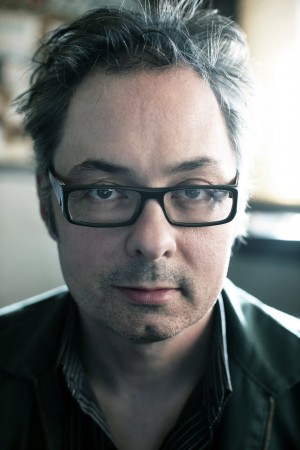Kevin Gordon Reveals “Gloryland”
GALO: “How many men long dead have walked these halls thinking/There’s another somewhere they’d like to see.” “Black Dog” is another fearsome guitar song. Is this about a mid-life crisis?
KG: [Laughs] I like to refer to it as a very early mid-life crisis. I was in an old house and [would] wonder what stories were going on there before I got there. That’s such a personal song it was hard to see what was going on, if I had a good song or not. Once I had the bridge, I thought, ‘OK, this is interesting,’ because the bridge had more chords in it than I think any song I had written previously. [Laughs]
GALO: How did the helicopter fit in there?
KG: Of course, it’s an ominous presence as well as, at least theoretically, a protective one. I guess it depends on what you’re doing at the time.
GALO: I always think of surveillance.
KG: Yes, in that it certainly shows up in some other songs on the record. I guess that was finished during the Bush era when I was thinking of things like surveillance.
GALO: “What would Jesus do” is a question in “Trying to Get to Memphis.” Does Jesus play a part in your life?
KG: Yes, [though] probably not in the traditional sense. Growing up where I did and how I did, there’s a legacy of Christian belief there. Although with my parents, it was kind of a backsliding attempt at faith. But I think living where I do (East Nashville), which is like the Bible publishing capital of the world; it is part of the mythology of the place. I guess it’s a legacy I still investigate.
I’ve been having interesting conversations with my kids on this because we are not churchgoers really, and have not been too forceful in what we teach them in that way. So talking to them about all this is a problem because I’m often not sure what to say.
I see so much being done in the name of Jesus these days that is, at least in my mind, completely against anything I can find about him. This demand that everything be taken literally — I think people have forgotten just what belief is. Belief doesn’t mean that you demand it to be true. I get frustrated with all that.
GALO: The “Trying To Get To Memphis” lyrics in the Gloryland pamphlet read at the end of the song, “But good luck to you/even if it’s true,” but on the album you sing “even if it’s not true.” Is there a story there?
KG: Well, on the surface that’s about me inserting the wrong lyric into the PDF booklet. It did change. It was originally that way, “even if it’s true.” When we were cutting the vocal, it was Joe McMahan (producer) who suggested I put the word “not” in there. And I think it makes more sense with that in there. I think I was going for a little too much ambiguity there in the previous draft.
GALO: I’ve seen that you keep a journal to log ideas into. (The “Bus to Shreveport” tune is another killer story; it’s like a short story about going to see ZZ Top in Shreveport.) Did you keep a journal as a kid that you could pull ideas from and can you tell us where did that infectious shuffle beat come from?
KG: I don’t remember keeping a journal that early (12 or 13-years-old), but it probably wasn’t much later than that when I started to attempt to write poems. I just always remembered that experience and that was actually one of the last things I brought in as a possible song for the record. I wrote out the story in a deliberate narrative way and was playing with it in a more generic Chuck Berry kind of groove. I didn’t actually finish the song until we were in the studio tracking it in April 2009. That’s where the ending comes from, that whole “don’t tell” thing, because I knew it needed to go somewhere. That’s pretty much the way it all went down, I mean, even the book about the KKK under the car seat was really there.
Looking back on it, over the years, it was an amazing experience for someone my age. I think I was 13 then, not 12; for some reason that makes a difference to me. [Laughs] I went to a few concerts like that with my uncle. I was certainly exposed to a few things that were new to me.
GALO: In the song it says, “So I just said no,” when the guy is passing you the joint. Is that what happened?
KG: I did pass on it. I remember it being more like, ‘Oh God, what am I supposed to do’; a kind of awkwardness. I had not smoked pot up to then and still didn’t for a while. I had never tried it. But the air quality inside the stadium was such that I’m sure via second hand I smoked plenty of pot [laughs] during those shows.
(Article continued on next page)

